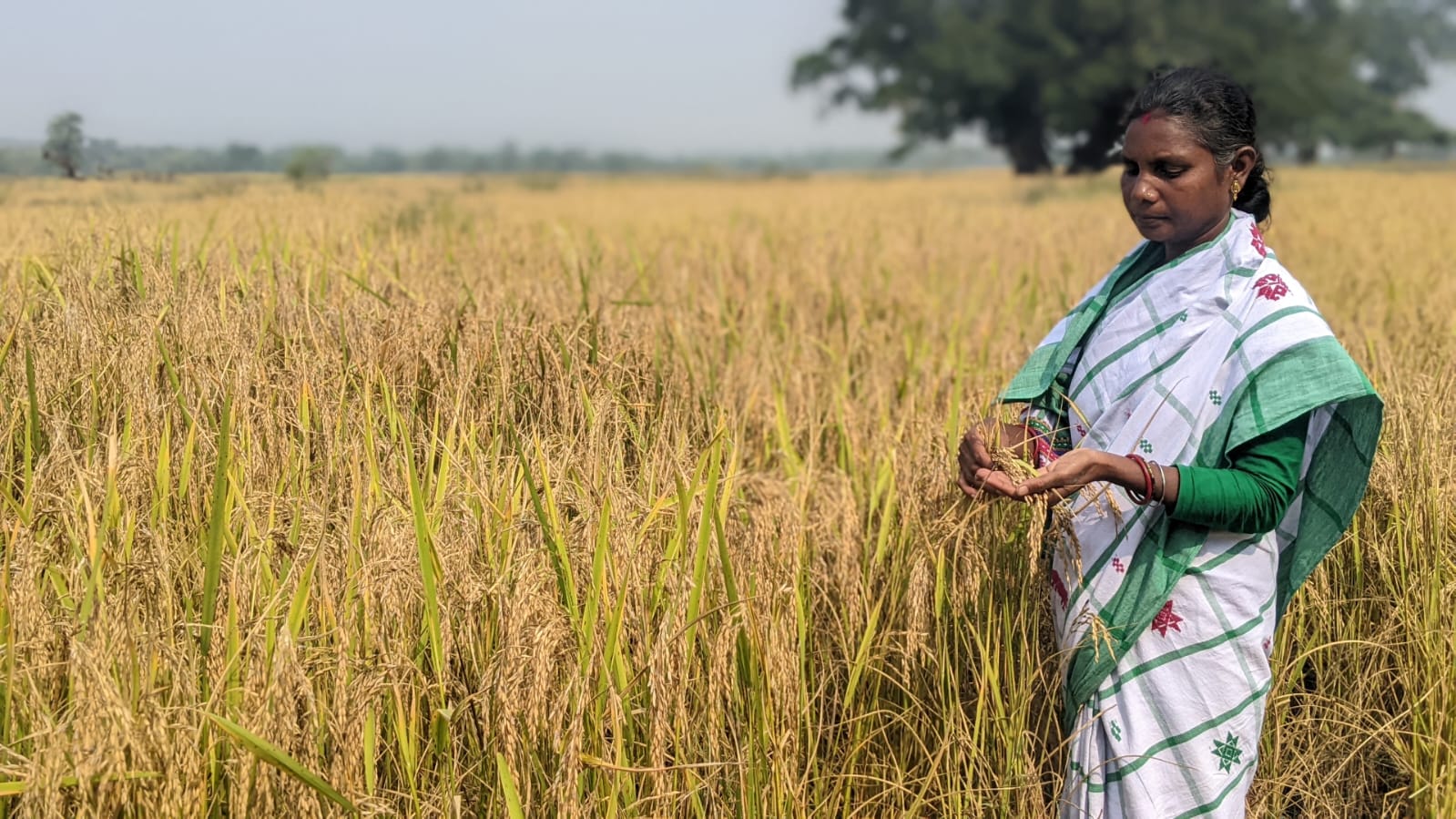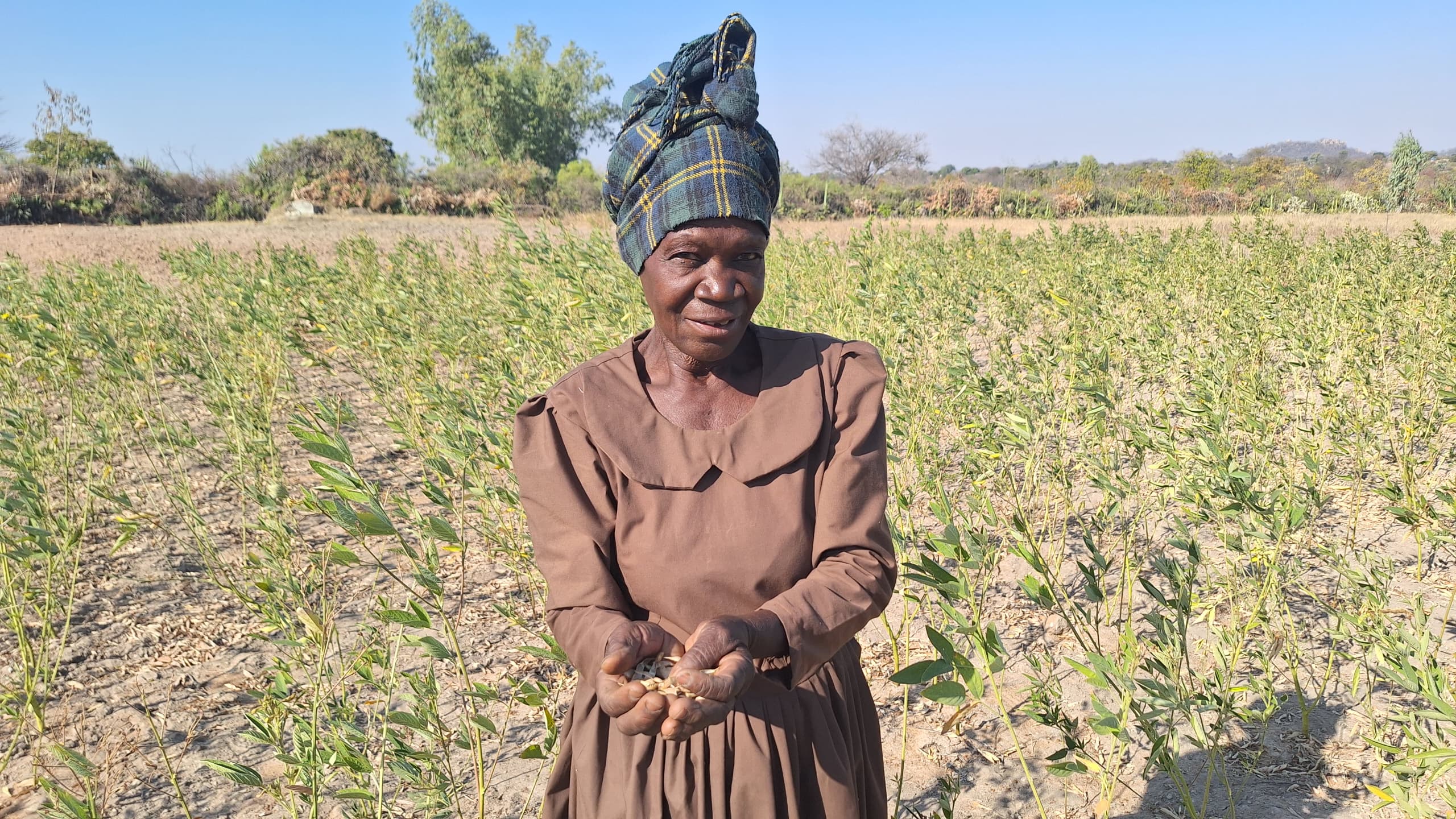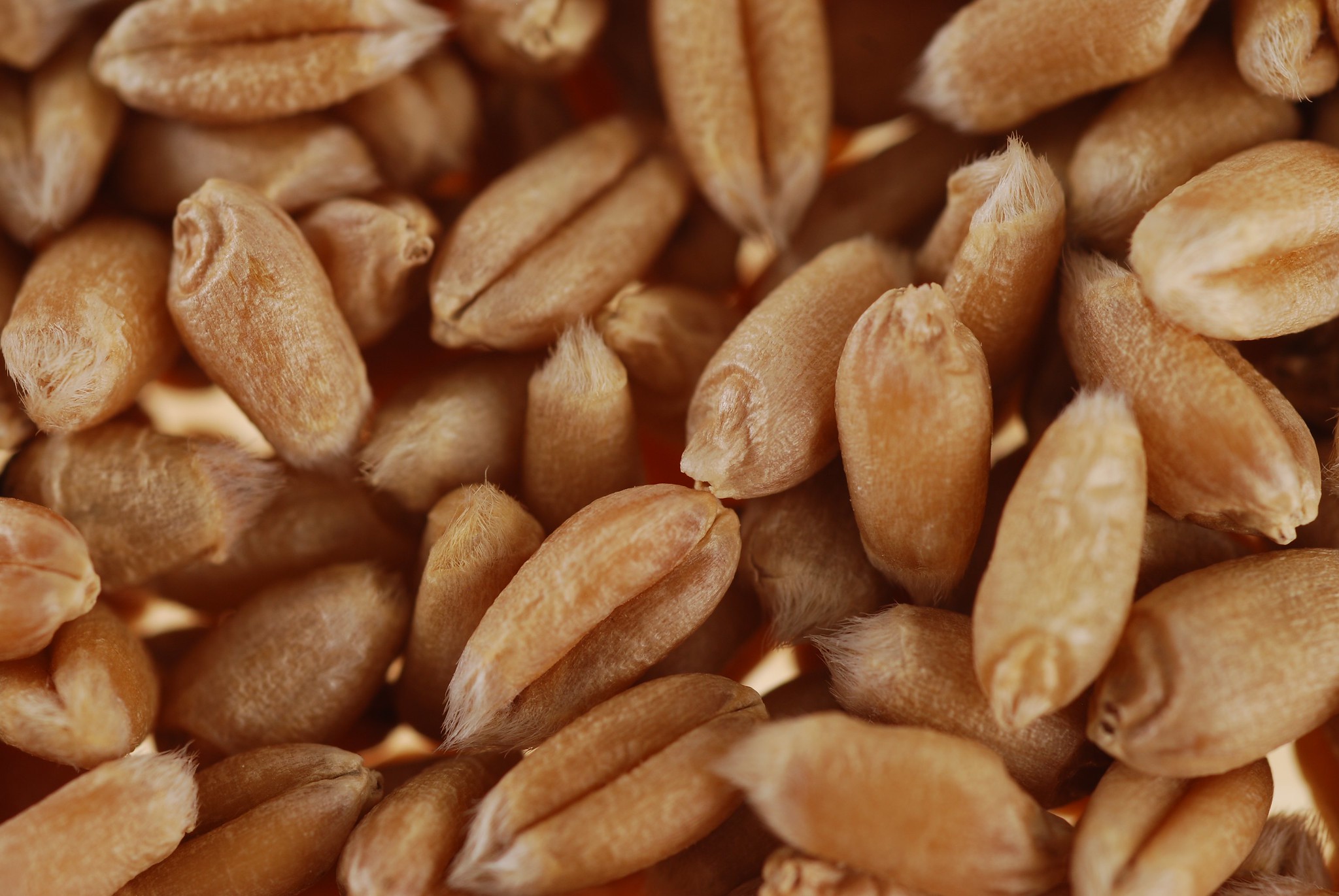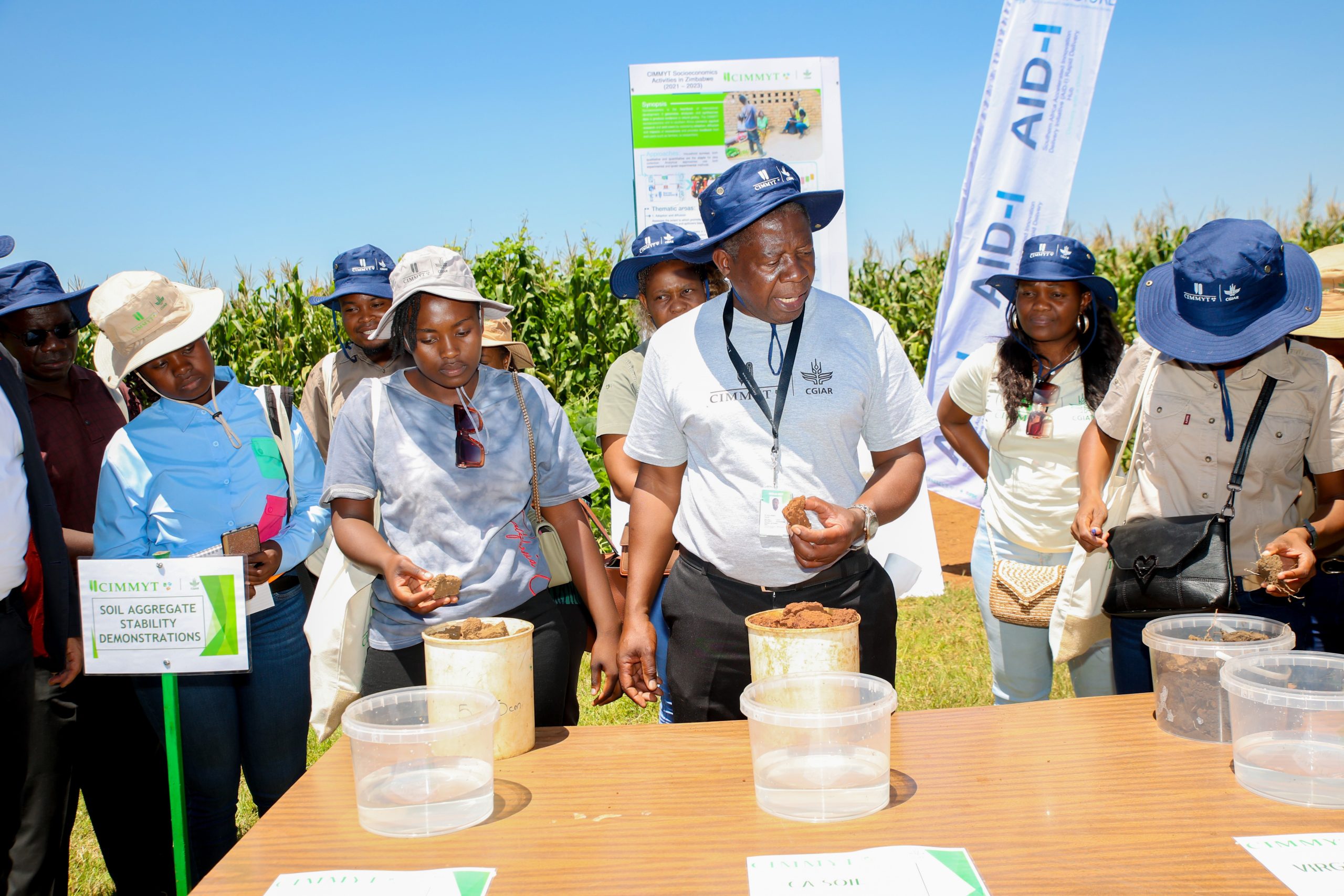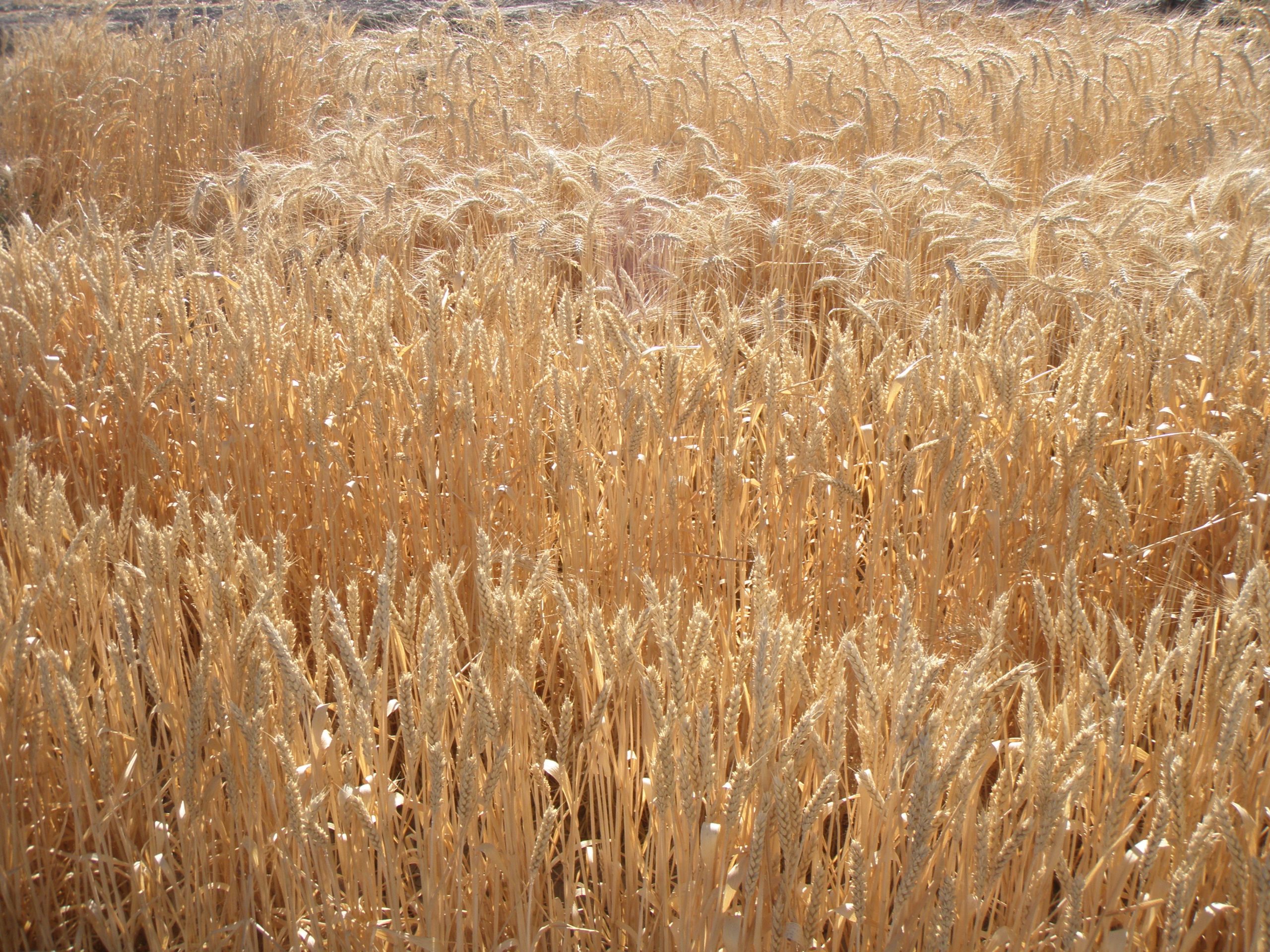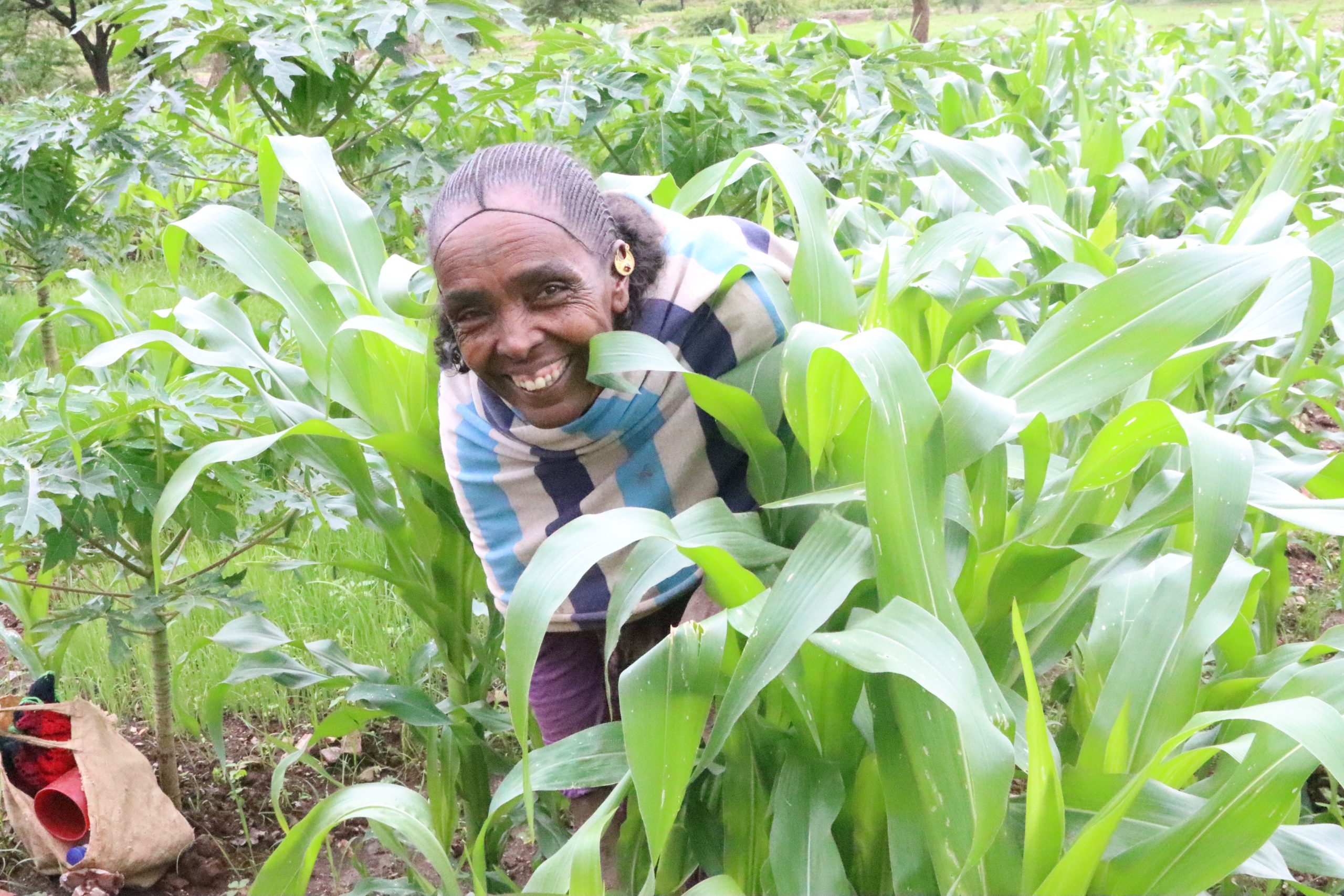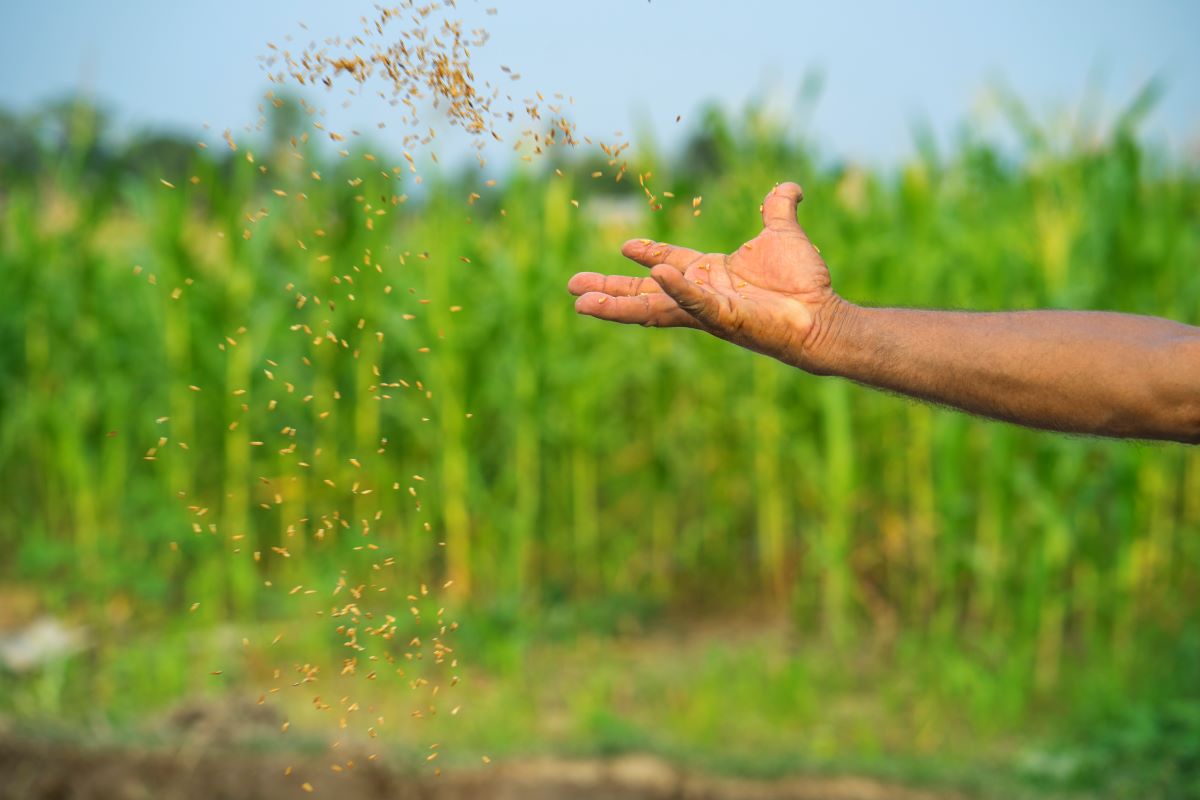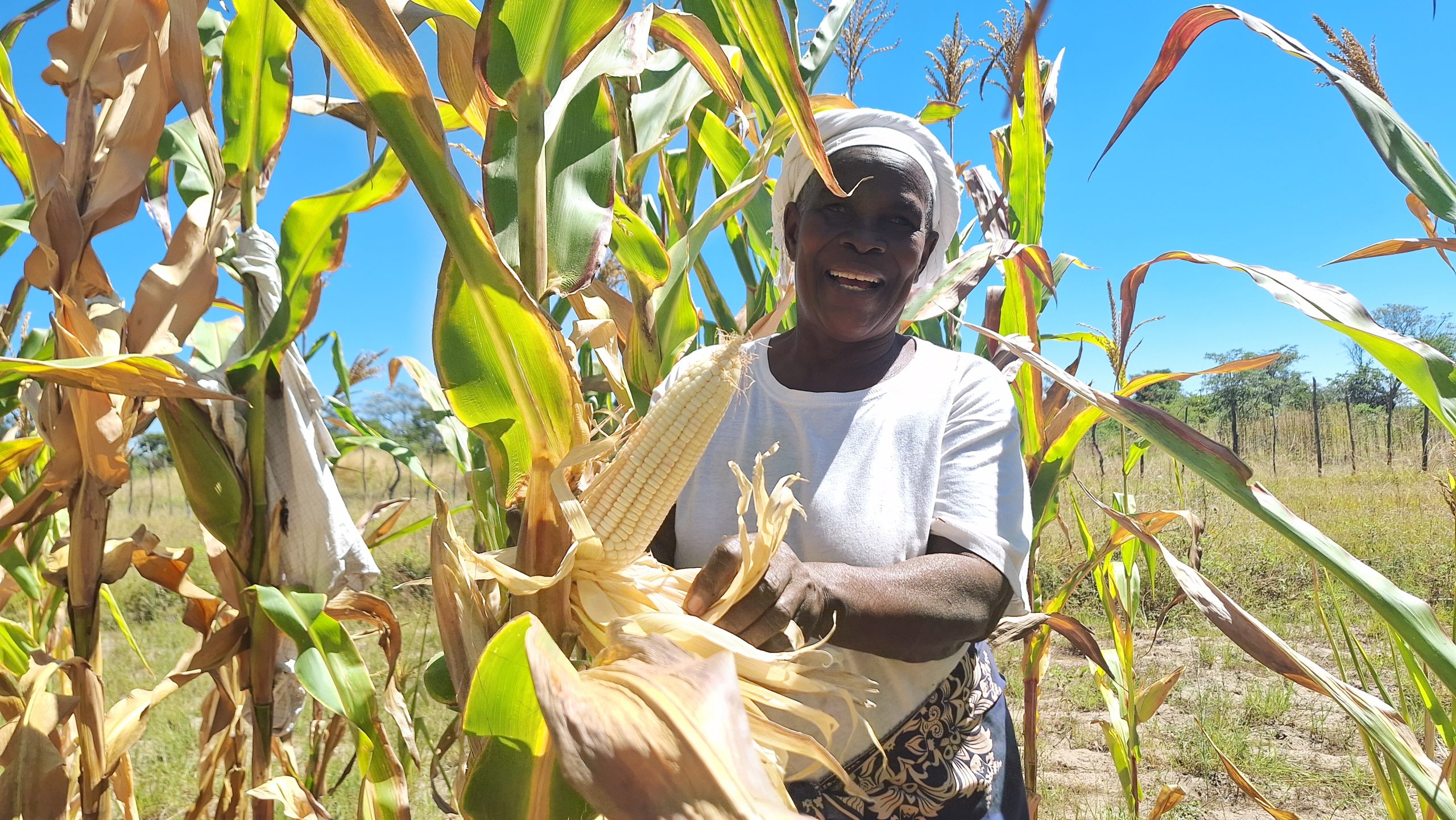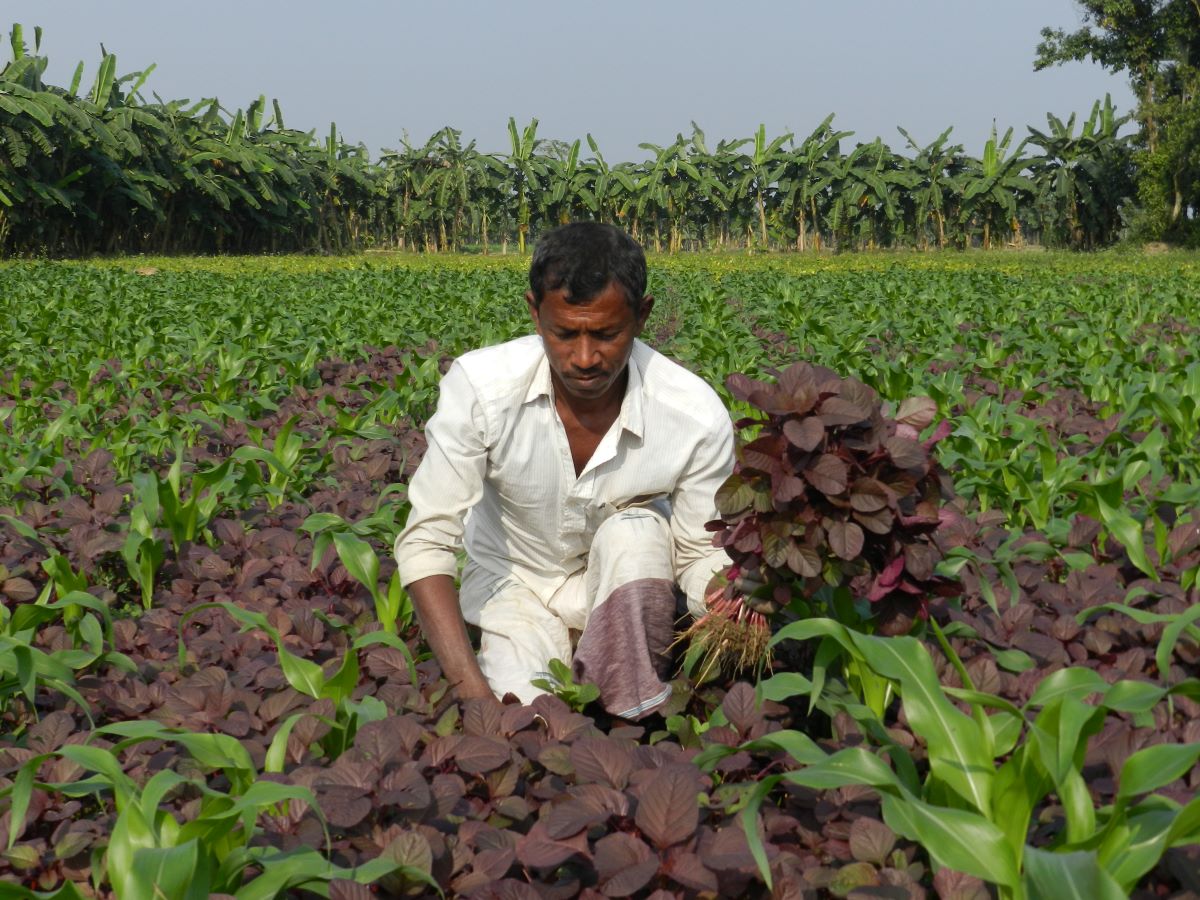Climate adaptation and mitigation
Climate change threatens to reduce global crop production, and poor people in tropical environments will be hit the hardest. More than 90% of CIMMYT’s work relates to climate change, helping farmers adapt to shocks while producing more food, and reduce emissions where possible. Innovations include new maize and wheat varieties that withstand drought, heat and pests; conservation agriculture; farming methods that save water and reduce the need for fertilizer; climate information services; and index-based insurance for farmers whose crops are damaged by bad weather. CIMMYT is an important contributor to the CGIAR Research Program on Climate Change, Agriculture and Food Security.
Malho Marndi finds way forward with Direct Seeded Rice (DSR) Technology
 Climate adaptation and mitigation
Climate adaptation and mitigation
Malho Marndi is leading the way, proving that with the right technology, smallholder farmers can thrive
Context-dependent agricultural intensification pathways to increase rice production in India
 Climate adaptation and mitigation
Climate adaptation and mitigation
Source: Nature Communications ()
A Nature Communications study shows that targeted nitrogen and irrigation interventions can sustainably boost rice yields and profitability in India
Scaling fodder innovations to improve livestock productivity in Zimbabwe’s semi-arid regions
 Climate adaptation and mitigation
Climate adaptation and mitigation
The LIPS Zimbabwe project boosts livestock productivity and climate resilience by introducing drought-tolerant fodder crops and mechanization to farmers in semi-arid regions
Wild wheat: The key to food security in a warming world
 Climate adaptation and mitigation
Climate adaptation and mitigation
Increased investment in researching the crop’s grassy cousins can yield a new generation of varieties that are not just climate-resilient, but also environmentally regenerative
CIMMYT Director General visit to UQ
 Capacity development
Capacity development
Source: The University of Queensland ()
CIMMYT Director General Bram Govaerts’ visit to UQ strengthened a long-standing partnership focused on advancing sustainable agriculture and food security
U.S. Pledges $5M for Guatemala Food Security Initiative
 Climate adaptation and mitigation
Climate adaptation and mitigation
Source: The Mirage ()
A $5 million initiative under the Vision for Adapted Crops and Soils is advancing sustainable agriculture and food security in Guatemala by improving soil health, crop diversity, and climate resilience
How effective soil aggregate management can boost productivity and climate resilience
 Climate adaptation and mitigation
Climate adaptation and mitigation
Conservation agriculture helps restore degraded soils, improve soil health, and enhance crop resilience to climate challenges, though the process requires patience, careful management, and long-term commitment
Innovative Integration of Cutting-Edge AI and Genetic Diversity in Wheat Breeding Revolutionizes Agricultural Practices
 Climate adaptation and mitigation
Climate adaptation and mitigation
Through innovative collaboration and cutting-edge technology, CIMMYT is revolutionizing wheat breeding, developing varieties that not only yield more but also thrive in adverse conditions, addressing the urgent global need for food security
How ancient wild relatives of wheat could safeguard our food supply
 Climate adaptation and mitigation
Climate adaptation and mitigation
A CIMMYT study shows ancient wild wheat relatives can boost climate resilience and disease resistance in modern varieties
Building Resilience in Tigray: How CSA is pioneering sustainable agriculture in Ethiopia
 Climate adaptation and mitigation
Climate adaptation and mitigation
Adoption of Climate Smart Agriculture (CSA) technologies and practices in Tigray, Ethiopia, praised by CIMMYT scientists and partners
The Sudan Food Security Initiative: Early wins amidst conflict and crisis
 Climate adaptation and mitigation
Climate adaptation and mitigation
CIMMYT’s Sustainable Agrifood Systems Approach for Sudan (SASAS) program empowers farmers and herders in conflict-affected Sudan by promoting food security and reducing reliance on humanitarian aid. Working with partners, SASAS has launched the Sudan Food Security Initiative in east Sudan to ensure that over 50,000 farmers have access to certified seeds, fertilizers, herbicides, and required agricultural resources
Buffering Climate Extremes in Zambia: The Essential Role of Delivery with a Difference
 Climate adaptation and mitigation
Climate adaptation and mitigation
CIMMYT’s AID-I initiative helps Zambian farmers adapt to climate change by providing drought-tolerant crops and essential agricultural support
Driving innovation through digital agriculture: Digital Ag Nepal, 2024
 Capacity development
Capacity development
The two-day event aimed to explore gaps between technology and agriculture and propose digital solutions to promote sustainable development and enhance food security in Nepal. Experts from around the world shared emerging technologies, innovations and learning to help bridge the divide
Enhancing farmer’s crop productivity with resilient maize varieties tailored to their needs
 Climate adaptation and mitigation
Climate adaptation and mitigation
For more than a decade, the participatory regional on-farm trials (ROFT) have involved hundreds of farmers to identify the most suitable new maize hybrids, contributing to CIMMYT’s mandate of tackling food and nutrition insecurity through advanced breeding methods
